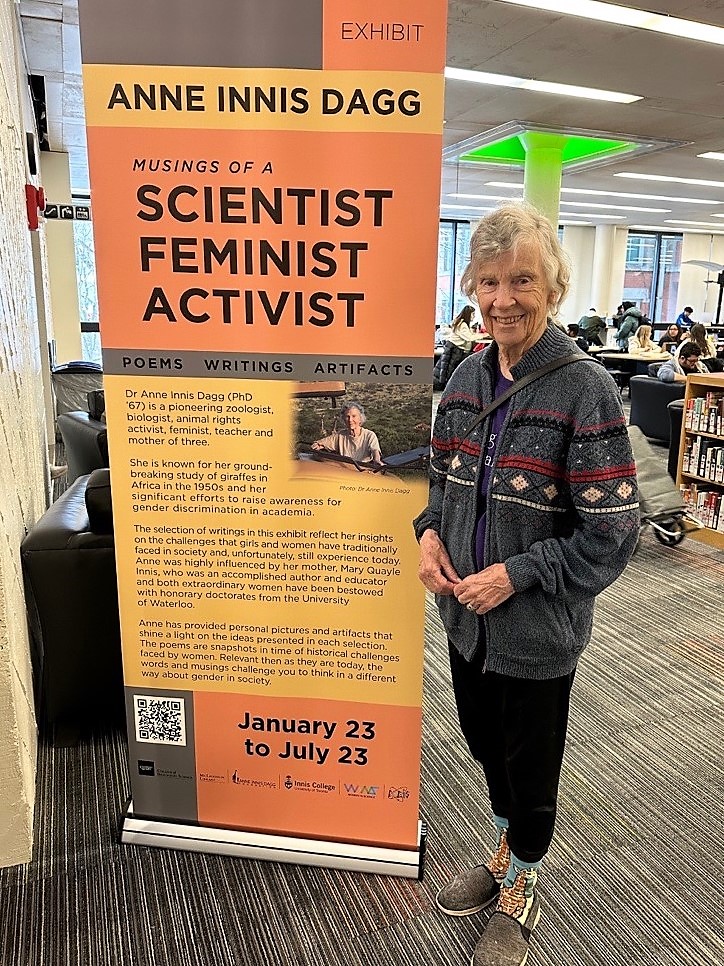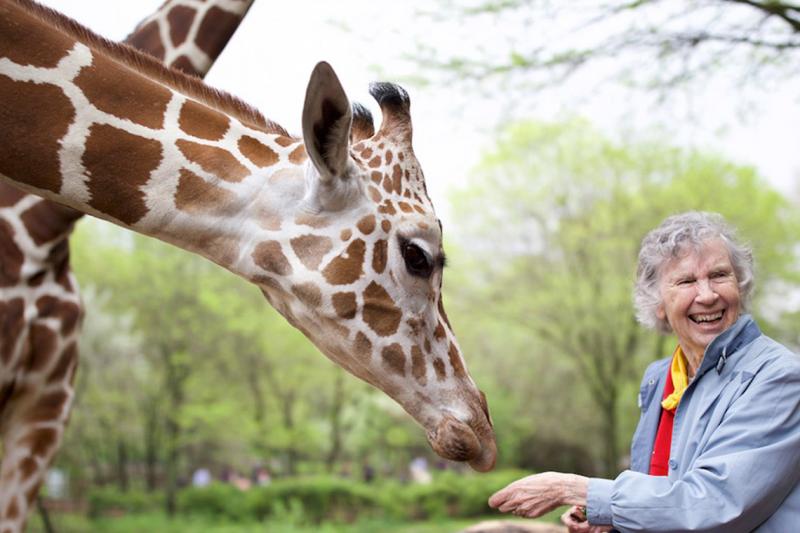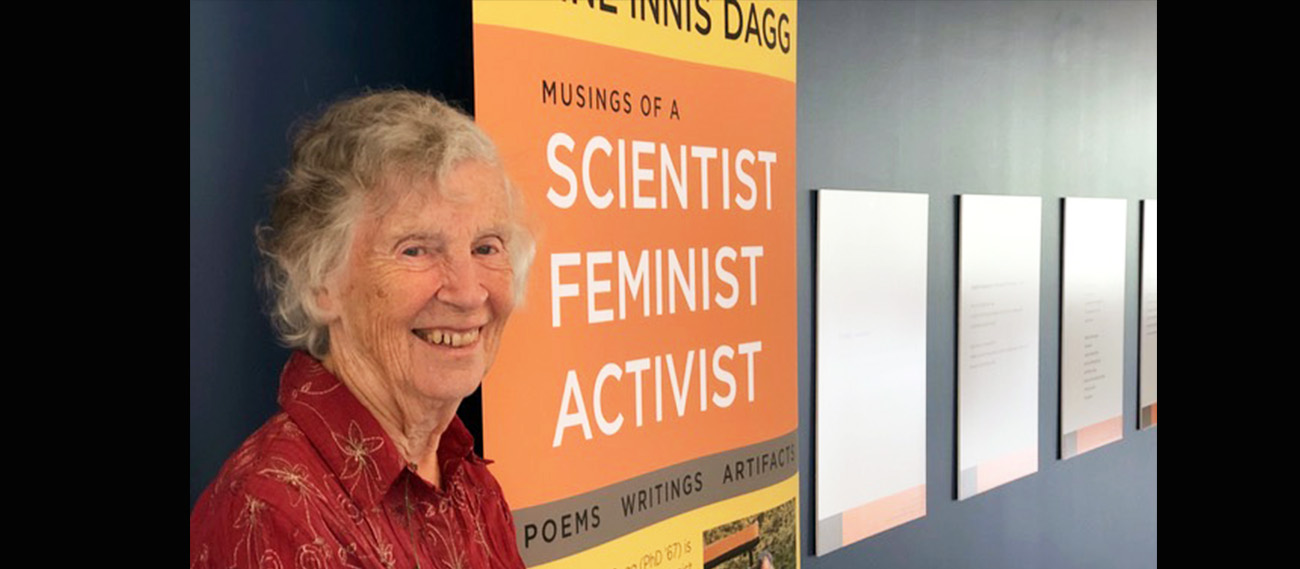
A travelling exhibit that highlights a pioneering Canadian wildlife scientist and her fight for gender equality — featured in the award-winning 2018 documentary The Woman Who Loves Giraffes — is coming to the University of Guelph.
The Anne Innis Dagg Exhibit: Musings of a Scientist, Feminist, Activist will be installed in the McLaughlin Library Jan. 23. Besides drawing attention to past and present obstacles faced by women in STEM (science, technology, engineering and mathematics) fields, the exhibit will provide a valuable experiential learning opportunity for U of G students.
“The University of Guelph is pleased to have this important exhibit on our campus,” said U of G president Dr. Charlotte Yates.
“Dr. Dagg is a trailblazer whose scientific work has improved understanding about wildlife, especially her courageous fieldwork that provided the world with new knowledge about giraffes.”
Dagg has received worldwide recognition for her research. She was the first person to study any wild animal behaviour in Africa and the first in the world to publish observations of homosexual behaviour in animals. During her 54-year career, she produced more than 60 scientific papers and 24 books.
As a poet and activist, she has opposed gender discrimination in academia and science, including writing the 1988 book MisEducation: Women and Canadian Universities. Her experiences were highlighted in the 2018 documentary and are featured in the writings and poetry in the exhibit, which also includes a collection of artifacts associated with her career as a wildlife biologist.
“The poems in this exhibit were written when times were much more challenging for women,” Dr. Dagg said. “I’m glad to know that the University of Guelph is moving in a positive direction and am very pleased to have my work on display.”
Anne Innis Dagg exhibit to be installed in McLaughlin Library

It was through The Woman Who Loves Giraffes that many learned of Dagg’s history with U of G. The documentary covers her time as a PhD student at the University of Waterloo; her joining U of G in 1968 and her unsuccessful bid for tenure in 1972; and her being denied a position at another Ontario university and taking her case to the Ontario Human Rights Commission, eventually losing.
After the documentary’s release, Yates met with Dagg and later issued a formal apology for her treatment by the institution in the 1970s.
“I am happy and proud to say that the University of Guelph is a different place now,” Yates said.
“The documentary sparked important conversations at U of G that we need to continue to have to ensure mistakes and oversight of the past are not repeated and we can fulfill our strong commitment to equity and inclusion.”
Three research assistantships in the College of Biological Science now carry Dagg’s name.
The Anne Innis Dagg Exhibit: Musings of a Scientist, Feminist, Activist exhibit will be installed in the McLaughlin Library on Jan. 23 by U of G students enrolled in a workplace learning course on exhibition development.
“In addition to learning about Dr. Dagg and her important work, this will provide students with hands-on experience in exhibit installation,” said course instructor and special collections librarian Melissa McAfee.
Students in the course learn how to design, install and promote exhibitions. The class is part of anexperiential learning partnership with U of G’s Department of History to expose students to careers in cultural heritage organizations.
The exhibit, which is coming to U of G from the University of Waterloo, will remain on campus until August, when it will move to Wilfrid Laurier University.
